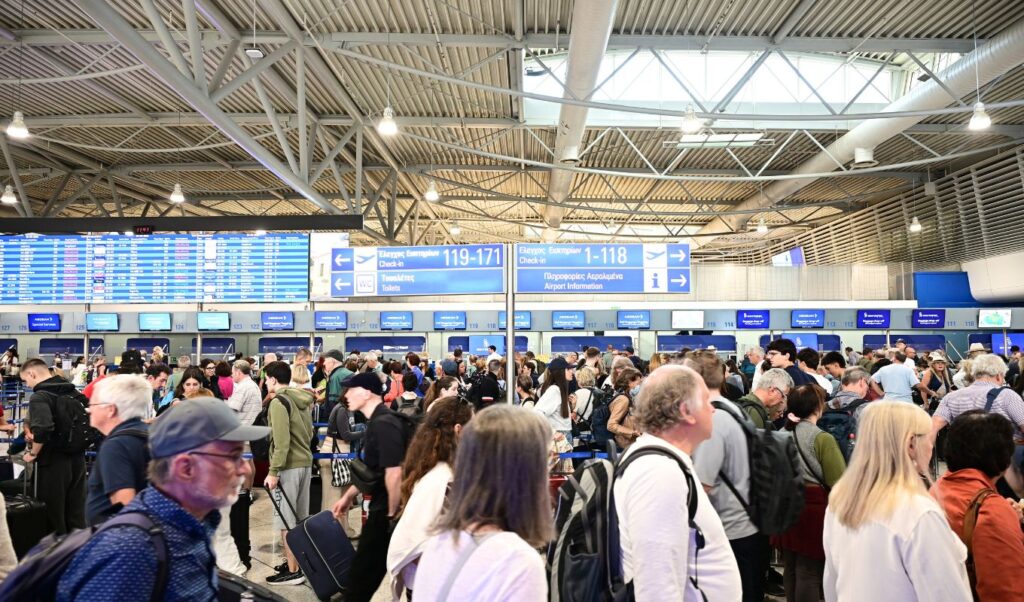A new Entry-Exit System (EES) comes into effect from Sunday (12/10) for Schengen area countries (including Greece), which will replace passport stamping with electronic recording and storage of travelers’ entry and exit data. The implementation of the new system will be carried out gradually across the entire Schengen area with completion expected by April 10, 2026.
Read: Passports: Europe abolishes stamps – Changes for travelers outside EU
Who the Entry-Exit System affects
The new system applies to third-country nationals traveling for short stays of up to 90 days within a 180-day period in Schengen area countries. This includes EU member states except Ireland and Cyprus, as well as Switzerland, Liechtenstein, Iceland and Norway. The System replaces the traditional passport stamping procedure at the Schengen area’s external borders and also records data of travelers whose entry for short stays has been denied.
New Entry-Exit system: How it will work
Upon first arrival in the Schengen area, travelers must present their passport and submit to biometric data collection (facial scanning and fingerprints). The border control officer verifies the information, asks questions and digitally records the traveler’s entry into the System. Upon departure, data is checked to confirm compliance with stay limits and register the exit. On subsequent trips, only biometric face verification will be required. Children under 12 will be registered in the system through photography. Use of the System is free for travelers.
Where it will be implemented
- At external borders of member states that have fully integrated the Schengen acquis.
- In member states that do not yet have full implementation of the acquis, but have completed the Schengen evaluation and have passive access to VIS and full access to the Schengen Information System.
The goal of the changes
Replacing manual stamps with a digital entry-exit record aims to:
- Enable more effective border management.
- Prevent irregular migration.
- Make it easier to detect travelers who have overstayed their allowed duration.
Exemptions from the System
The system does not apply to:
- Citizens of European countries already using it, as well as citizens of Cyprus and Ireland.
- Third-country nationals with residence cards and direct family relationship with EU citizens.
- Third-country nationals with residence cards or permits who are direct relatives of third-country nationals with free movement rights in Europe.
- Travelers for intra-company transfers, research, studies, training, volunteering, student exchange programs or educational programs, as well as au pairs.
- Holders of long-term residence permits and long-duration visas.
- Citizens of Andorra, Monaco, San Marino and Vatican passport holders.
- Travelers with special privileges or exemptions from border controls.
- Holders of local border traffic permits.
- Crew members of passenger or freight trains on international routes with intermediate stops.




